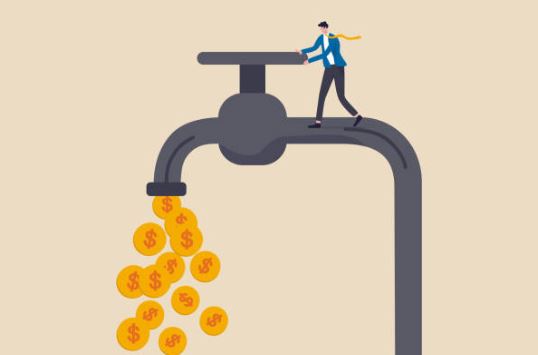Water Compliant
Introduction
Water compliance is a critical aspect of ensuring access to clean and safe water for all. In this article, we will delve into the importance of water compliance, its role in achieving sustainable water solutions, and the measures that individuals, industries, and governments can take to uphold water compliance standards. Join us on this journey to understand how we can collectively preserve our most precious resource: water.
Table of Contents
- Understanding Water Compliance
- Definition of Water Compliance
- Significance of Water Compliance
- Global Water Crisis: Why Compliance Matters
- The Current State of Water Resources
- Environmental Impact of Water Mismanagement
- Regulations and Standards for Water Compliance
- International Water Quality Guidelines
- National and Local Water Laws
- The Role of Industries in Water Compliance
- Best Practices for Industrial Water Usage
- Wastewater Treatment and Discharge
- Sustainable Water Management
- Implementing Water Conservation Strategies
- Rainwater Harvesting and Reuse
- The Importance of Water Compliance in Agriculture
- Efficient Irrigation Techniques
- Minimizing Agricultural Runoff
- Water Compliance in Urban Settings
- Addressing Water Pollution in Cities
- Community Initiatives for Clean Water
- The Future of Water Compliance
- Technological Advancements in Water Treatment
- The Impact of Climate Change on Water Resources
- Ensuring Water Compliance at Home
- Water Conservation Tips for Individuals
- The Role of Education in Promoting Compliance
- Collaboration and Advocacy for Water Compliance
- Public-Private Partnerships
- Non-Governmental Organizations’ Role
- Addressing Water Scarcity in Developing Nations
- Innovative Solutions for Water-Scarce Regions
- Building Sustainable Water Infrastructure
- The Economic Benefits of Water Compliance
- Cost Savings Through Water Efficiency
- Sustainable Business Practices
- Public Health and Water Compliance
- Waterborne Diseases and Contamination
- Improving Sanitation and Hygiene
- Overcoming Challenges in Water Compliance
- Lack of Awareness and Education
- Funding and Resource Constraints
- Conclusion
Understanding Water Compliance
Water compliance refers to the adherence to regulations, guidelines, and standards set by local, national, and international authorities to ensure the quality, availability, and sustainability of water resources. It involves responsible water management practices and the prevention of pollution to safeguard both human health and the environment.
Global Water Crisis: Why Compliance Matters
The world is facing a growing water crisis due to factors such as population growth, climate change, and unsustainable water usage. The mismanagement of water resources and pollution further exacerbate the problem, underscoring the urgent need for water compliance.
Regulations and Standards for Water Compliance
Various organizations, such as the World Health Organization (WHO) and the Environmental Protection Agency (EPA), have established water quality guidelines to protect human health. Additionally, governments enact laws and regulations to ensure water compliance within their territories.
The Role of Industries in Water Compliance
Industries play a crucial role in water consumption and pollution. Implementing best practices for water usage and investing in wastewater treatment can significantly contribute to maintaining water compliance.
Sustainable Water Management
To achieve sustainable water solutions, implementing water conservation strategies and promoting rainwater harvesting are essential steps. These initiatives can help in effectively managing water resources for the future.
The Importance of Water Compliance in Agriculture
Agriculture is a major consumer of water. Emphasizing efficient irrigation techniques and controlling agricultural runoff are vital to preserving water quality and quantity.
Water Compliance in Urban Settings
Urban areas face unique water challenges. Addressing water pollution and encouraging community-based water management initiatives are crucial for sustainable urban development.
The Future of Water Compliance
Advancements in water treatment technologies and understanding the impact of climate change on water resources will shape the future of water compliance efforts.
Ensuring Water Compliance at Home
Individuals can contribute to water compliance by adopting water-saving habits and staying informed about water-related issues.
Collaboration and Advocacy for Water Compliance
Collaboration between the public and private sectors, along with the active involvement of NGOs, can strengthen water compliance efforts on a global scale.
Addressing Water Scarcity in Developing Nations
In regions facing water scarcity, innovative solutions and sustainable infrastructure development can make a significant difference in achieving water compliance.
The Economic Benefits of Water Compliance
Water efficiency can lead to cost savings for businesses while fostering sustainable practices that benefit the environment.
Public Health and Water Compliance
Complying with water regulations directly impacts public health by reducing the risk of waterborne diseases and contamination.
Overcoming Challenges in Water Compliance
Raising awareness, allocating sufficient funding, and overcoming resource constraints are essential steps in addressing the challenges of water compliance.
Conclusion
Water compliance is paramount for ensuring access to clean and sustainable water for current and future generations. By prioritizing responsible water management, adhering to regulations, and promoting water conservation, we can collectively safeguard this precious resource. Let us work hand in hand to secure a water-compliant world for all.
FAQs
- What is water compliance? Water compliance involves adhering to regulations and guidelines to ensure the quality and sustainability of water resources.
- Why is water compliance crucial? Water compliance is crucial because it helps protect human health and the environment, and promotes sustainable water solutions.
- How can industries contribute to water compliance? Industries can contribute to water compliance by implementing best practices for water usage and investing in wastewater treatment.
- What are some sustainable water management strategies? Sustainable water management strategies include water conservation measures and rainwater harvesting.
- How can individuals support water compliance? Individuals can support water compliance by adopting water-saving habits and staying informed about water-related issues.
Need to contact a plumber then call us at 0409 364 858 or contact us here
Here are some great reading about plumbing right here.
Tradelink And or Reece’s are a good place to start for fine tapware.


